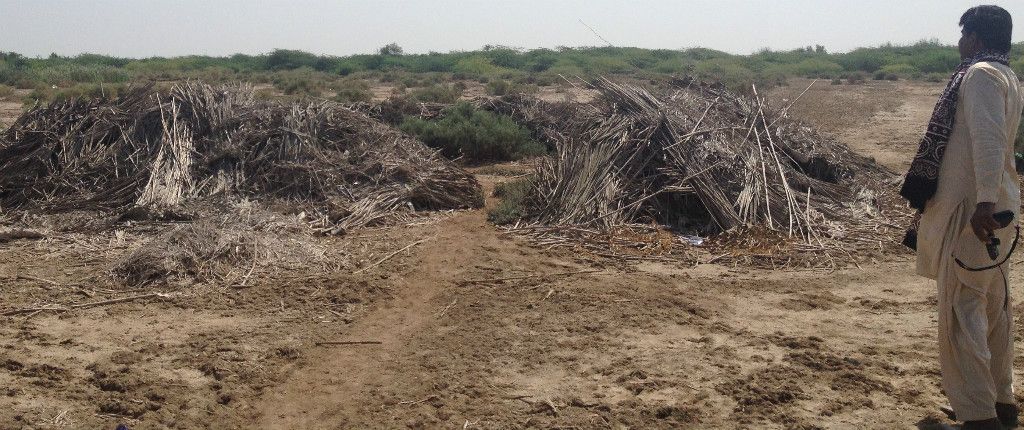
This project has been completed.
Strengthening communities against disaster
The Sindh region, where Malteser International has been working since 2015, is particularly prone to disasters such as floods, storms, droughts and earthquakes, mostly as a result of its topography. State and civil society actors in the region have little expertise and resources to respond adequately to natural disasters and the effects of climate change. These issues disproportionally affect the poorest people in the region, who on one hand lack the resources to cope, and other other hand are limited by poverty; over 40% of the population in Sindh is facing multidimensional poverty. On top of these, inadequate infraastructure, weak public systems and a lack of access to healthcare lead to a demoralizing cycle that places a heavy burden on the resources of vulnerable people in one of the world’s poorest countries.
In 2015, large parts of the Sindh province experienced severe flooding, with enormous consequences for the people affected. The following years saw long periods of drought cause massive crop failure and food insecurity for local communities. Almost half of the livestock populationwas lost. Poor rainfall meant there was less water to cook, farm, and feed cattle.
In September 2018, the Sindh government declared a drought emergency in eight districts of the province, including Sanghar district, where almost three quarters of households already suffer from food insecurity. It is feared that another disaster will result in a major food crisis. Such emergencies are likely to increase in intensity and frequency, requiring rapid and effective action and concentrated intervention.
Address immediate humanitarian needs of vulnerable communities in Sanghar district
Strengthen local capacities to respond to the humanitarian impact of extreme weather events.
Strengthening food security and improving water, sanitation, and hygiene structures, and building resilience of local people through disaster risk-reduction.
-
Establishment, training and equipping of village and Union Council committees for the implementation of disaster preparedness, WASH and food security measures
-
Development of disaster preparedness plans at village level for future emergencies in WASH and food security
-
Training of a community-based emergency response pool
-
Awareness-raising campaigns on precautionary measures in the event of drought and floods
-
Training 30 community members as humanitarian reconstruction professionals in WASH and agriculture
-
Measures to improve drinking water quality at household level
-
Clarification of the target communities in the area of sanitation through community-based approaches
-
Health and hygiene education to improve the nutritional situation in the villages
-
Introduction of the superfood and drought-resistant Moringa plant at community level for short-term soil recovery, food aid and animal feed production
-
Information events on appropriate nutrition during pregnancy and lactation
-
Rehabilitation of agricultural and irrigation systems through cash for work measures
-
Immediate and precautionary measures to safeguard animal husbandry as the livelihood of vulnerable families
-
Distribution of food and non-food items
Country info
Capital: Islamabad
Area: 796.095 km²
Population: c. 225.2 m
Project data
Project duration: January 2019 - December 2021
Donors: German Federal Foreign Office, Germany's Relief Coalition (Aktion Deutschland Hilft)
Last updated: September 2019








